Historically speaking, queerness in popular media has been relegated to subtext, forcing LGBTQIA+ people to seek out any and every hint of it that they can find in the stories they consume. Some genres are considered more subtextually queer than others, and that’s especially true of horror. Queerness and monsterism are frequently linked, from Mary Shelley’s Frankenstein to Anne Rice’s Interview With the Vampire.
However, queerness has become increasingly explicit in the media we see today. And given the history, it makes sense that horror has been at the forefront of LGBTQIA+ representation across mediums, from movies to comics and literary fiction. There is a plethora of queer horror available—and whether you’re a monster-lover or someone who just wants to explore a gothic castle haunted by a ghost, these 15 titles are worth your consideration.
The Book Eaters by Sunyi Dean
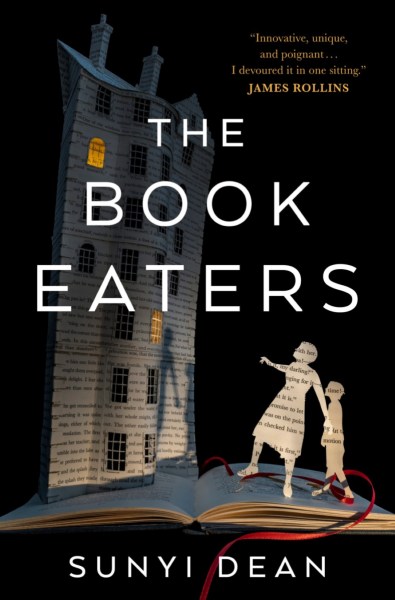
Sunyi Dean’s The Book Eaters is a cross between the sci-fi/fantasy and horror genres. Its main character, Devon, realizes she has a completely different relationship to sexuality (and the world at large) when she flees her ancestral home to protect her monstrous son.
The Book Eaters are an old species whose nutrients come from the words they eat, and their population is shrinking. It doesn’t help that some Book Eater women give birth to Mind Eaters, who won’t survive on words alone unless they take an incredibly rare drug produced by just one family of Book Eaters who have basically gone off the grid. To gain access to that drug (called Redemption) and save her son, Devon has to plan and execute incredible feats with the help of the very few allies she still has.
The Book Eaters is fast-paced and thrilling, with just the right amount of gore.
Carmilla by Joseph Sheridan Le Fanu (edited by Carmen Maria Machado)
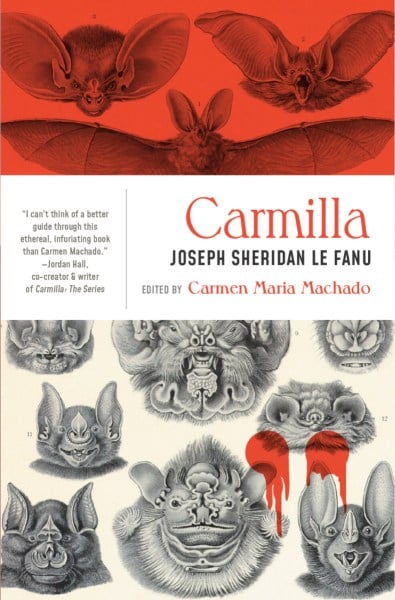
Carmilla is a classic lesbian vampire story that’s been refreshed by editor Carmen Maria Machado. You may remember the YouTube series that modernized the book and focused more on the relationship between Carmilla and Laura, a human woman. The book isn’t quite as romantic, although if that’s your preference, you can also read the novelization of the web series, Carmilla by Kim Turrisi.
Although Dracula is often (incorrectly) cited as the first real vampire tale, Carmilla pre-dates Bram Stoker’s seminal work by decades. It’s a delightfully spooky read, and Machado’s additions expand understanding around and conversation about the book in the best way.
Gideon the Ninth (The Locked Tomb #1) by Tamsyn Muir
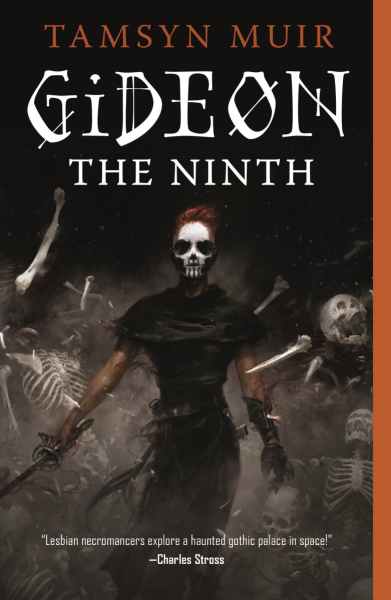
Gideon the Ninth begins Tamsyn Muir’s four-part series The Locked Tomb, and it kicks things off with a bang. Gideon Nav of the Ninth House is reluctantly assigned as the cavalier to bone witch Harrowhark Nonagesimus, Reverend Daughter of the Ninth House, when the latter is invited by the Emperor to compete in a trial, at the end of which she may ascend to immortality. This competition takes place at a haunted, gothic castle in space, and Gideon and Harrow meet necromancers and cavaliers from the other houses, all of whom are equally determined to win the ultimate prize.
Often described as “lesbian necromancers in space,” Gideon the Ninth mixes classic horror elements with sci-fi/fantasy and delicious tension for a raucous ride.
Her Body and Other Parties by Carmen Maria Machado

Her Body and Other Parties is a short story collection from Carmen Maria Machado that includes new takes on old classics—such as the story of the girl whose neck ribbon keeps her head attached—and even uber-scary snippets of Law & Order: Special Victims Unit fanfiction. This collection bends and extrapolates from multiple genres to explore the violence that is constantly visited upon women’s bodies, from sexualization to fatphobia. This book sticks to the teeth in the best and most haunting way.
It Came From the Closet edited by Joe Vallese
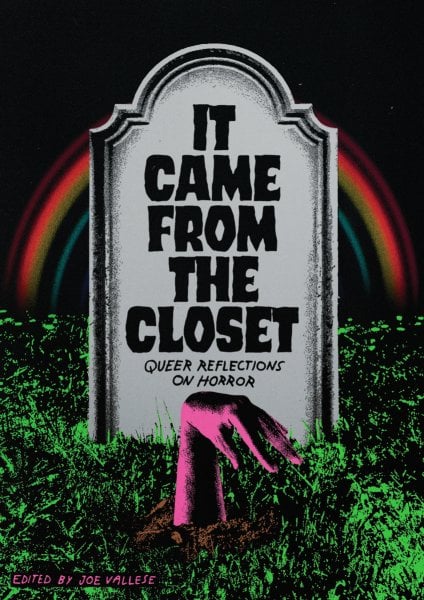
It Came From the Closet is a nonfiction anthology collecting works by queer and trans writers about the horror films that “deepened, amplified, and illuminated their own experiences.” As mentioned above, queerness and horror are historically linked, and this collection shines a light on that connection from multiple (often unexpected) angles. There are 25 essays in total, and contributors include Carmen Maria Machado, Addie Tsai, Bruce Owens Grimm, editor Joe Vallese, and more, all exploring contemporary and/or classic horror through a LGBTQIA+ lens.
The Luminous Dead by Caitlin Starling

Claustrophobia and psychological terror prevail in Caitlin Starling’s The Luminous Dead, which follows one desperate explorer through a haunted and hungry space cave led by someone she’s never even met, whose voice is the only thing she can rely on—at a cost.
Gyre hopes to take the huge paycheck waiting at the end of this job to get off-planet and track down her mom, assuming she’ll have a team on the surface keeping her safe. Instead, her guide, Em, freely controls Gyre’s body and mind through liberal application of drugs, withholding of critical information, and more infractions that ultimately lead to a wildly unhealthy and deeply codependent relationship. The Luminous Dead is horrifying not just for how intricately Starling pulls readers into the cave alongside Gyre, but also for how she portrays the danger of leaning in to a relationship when all you see are red flags.
Manhunt by Gretchen Felker-Martin

Gretchen Felker-Martin’s Manhunt explores the age-old concept of a deadly virus mutating humans with a certain set of chromosomes through the lens of trans people trying to survive in that hellish, post-apocalyptic world. Manhunt is as gruesome and violent as it is empathetic and complex; a vital reimagining of how these narratives are constructed and produced, complete with an all-out war against militant TERFs and moments of yearning that are deeply painful.
Manhunt follows longtime friends Beth and Fran, two trans women whose hunting and harvesting of feral men’s organs is necessary for their own survival (lest they suffer the same fate). When they meet Robbie, a Native trans guy whose trust in people has long since disappeared, the three become part of an unlikely found family whose relationships inform how they deal with the TERFs, a billionaire bunker brat, and their own demons.
Patricia Wants to Cuddle by Samantha Allen

Real Queer America author Samantha Allen’s Patricia Wants to Cuddle puts a bizarre and delightfully monstrous twist on competition reality TV series and what it really means to be the Final Girl. Four women competing for one man’s affections in the fictional series ‘The Catch’ are taken to an island in the Pacific Northwest, where they end up as surprised participants in an unscripted, action-packed thriller starring the mercurial and misunderstood local, Patricia.
This horror story is both a commentary on modern American media trends and a lesbian love story that’s deeply focused on found family and forming supportive communities against any odds.
Plain Bad Heroines by Emily M. Danforth

Plain Bad Heroines feels like a much queerer successor to Donna Tartt’s The Secret History, and it’s as funny as it is terrifying. The book takes place at Brookhants School for Girls, where students Flo and Clara are as obsessed with each other as they are with memoirist Mary MacLane. The girls establish a secret club to show their devotion to MacLane and meet in a nearby apple orchard, which becomes both the site of their happiest memories and their gruesome deaths.
Fast forward more than 100 years, and up-and-coming writer Merrit Emmons publishes a book about the queer, feminist history of Brookhants School for Girls. The book inspires a horror film starring “lesbian it girl” Harper Harper and former child star Audrey Wells, which will be filmed at the now-crumbling school. What ensues is the two stories becoming inextricably entwined in haunted and hilarious ways.
Queer Werewolves Destroy Capitalism by M.J. Lyons

Queer Werewolves Destroy Capitalism is a collection of five erotic short stories by debut author M.J. Lyons. Each one is as anti-capitalist as it is sexy (hence the title), and the settings range from Toronto to Paris and back again. This is both a fictional exploration of queer culture and labor history, and a delightful foray into speculative gay smut from Microcosm Publishing’s Queering Consent series.
Sorrowland by Rivers Solomon
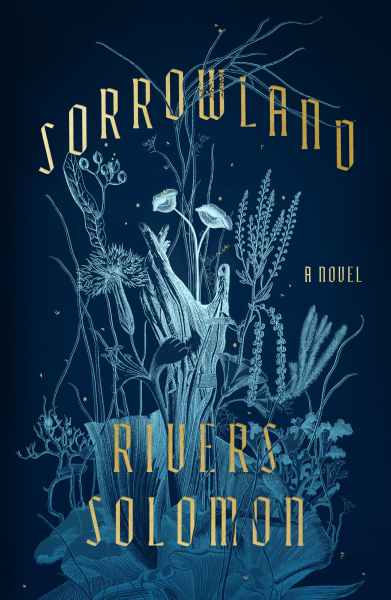
Rivers Solomon’s Stonewall Book Award-winning Gothic horror novel Sorrowland follows Vern, a pregnant teenager who flees the strict religious compound where she was raised and gives birth to her twins in the shelter of the woods. However, she quickly discovers that even in relative isolation, she’s still at risk—and being a hunted woman with two children to protect transforms her into something monstrous and terrifying.
As Vern attempts to fight back against the equally monstrous compound where she was raised, she discovers the violence of the country that bred and birthed it. Throughout the story, Solomon examines the perpetual violence visited upon Black women’s bodies, with a particular focus on Black mothers. Sorrowland is a searing commentary and a stunning, instant classic.
Summer Sons by Lee Mandelo

Summer Sons is a southern Gothic story following two men whose lives are unexpectedly entwined when they both suffer the loss of a friend thanks to his lifelong obsession with a bizarre and otherworldly mystery.
Andrew Blur intends to follow his adopted brother, Eddie, to Vanderbilt University—but when he finally arrives in Nashville, it’s to unravel the truth behind Eddie’s apparent suicide. The pair have a secret and terrifying history with both figurative and literal ghosts, and now Andrew has to resolve a curse and keep his own sanity as he picks up the pieces Eddie left behind. Along the way, he becomes increasingly fascinated by Eddie’s friend Sam Halse, which forces him to face some long-buried truths about himself.
Summer Sons is a ghost story that’s part Fast and the Furious, part dark academic horror, with an equal number of hauntingly gory and perfectly steamy encounters.
Things Have Gotten Worse Since We Last Spoke and Other Misfortunes by Eric LaRocca

Things Have Gotten Worse Since We Last Spoke and Other Misfortunes is a deeply disturbing collection of three short stories by Eric LaRocca that will keep you up at night. In one, two women meet in an online chat room in the early aughts and slowly give into their most horrible desires. In another, a couple mourning their son on an isolated island are surprised to find a young man knocking on their door in the middle of a storm. And in the third, a man confronts his neighbor about a strange object in his backyard and gets drawn into something much deeper and darker than he could have predicted.
White Is for Witching by Helen Oyeyemi
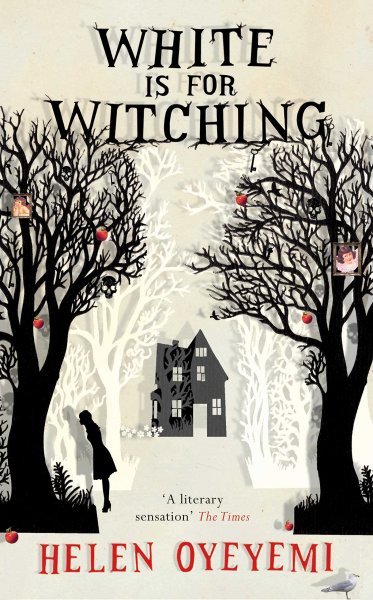
Helen Oyeyemi’s award-winning novel White Is for Witching takes place at the ancient and haunted Silver family house in Dover, England. Four generations of Silver women have called the house their home, and their intergenerational pull on each other comes to a head after the house is turned into a bed and breakfast and one of them dies suddenly on a trip abroad. Her daughter, Miranda, begins suffering from a bizarre illness and even begins hearing voices. But the house’s dark intent doesn’t make itself known until she brings a friend home and everyone involved is changed forever.
White Is for Witching is a commentary on legacy, race, and nationality, as well as a disturbing generational ghost story with a deep-seated mystery at its core.
Wilder Girls by Rory Power
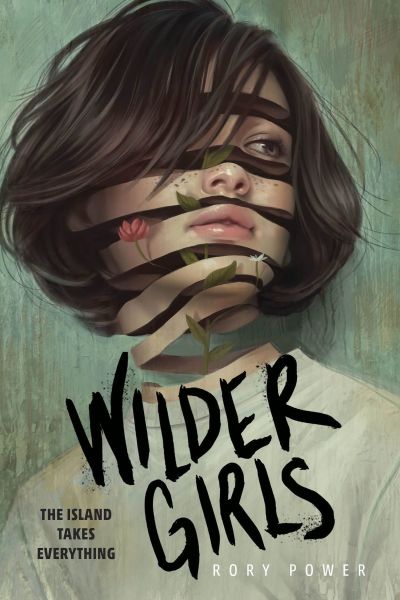
Rory Power’s Wilder Girls is a post-apocalyptic story that takes place at a girl’s school located on a remote island that feels similar to William Golding’s The Lord of the Flies. The Raxter School for Girls has been in quarantine for 18 months since “the Tox” hit and began picking off its residents one by one. The girls wait desperately for a cure so they can venture beyond the closed walls of the school, but then one of them goes missing, and protagonist Hetty will go to the ends of the world to find her. In her quest, she discovers that everything she thought about Raxter is wrong.
Wilder Girls combines psychological terror and body horror for a distressing and vivaciously written young adult novel that takes the best concepts of the post-apocalyptic subgenre and expounds upon them for something fresh and scary and raw.
(featured image: Zando; Tor Books; Lanternfish Press; Nan A. Talese; MCD Books; Harper Voyager; Feminist Press; Random House Children’s Books / The Mary Sue)
Want more stories like this? Become a subscriber and support the site!
—The Mary Sue has a strict comment policy that forbids, but is not limited to, personal insults toward anyone, hate speech, and trolling.—



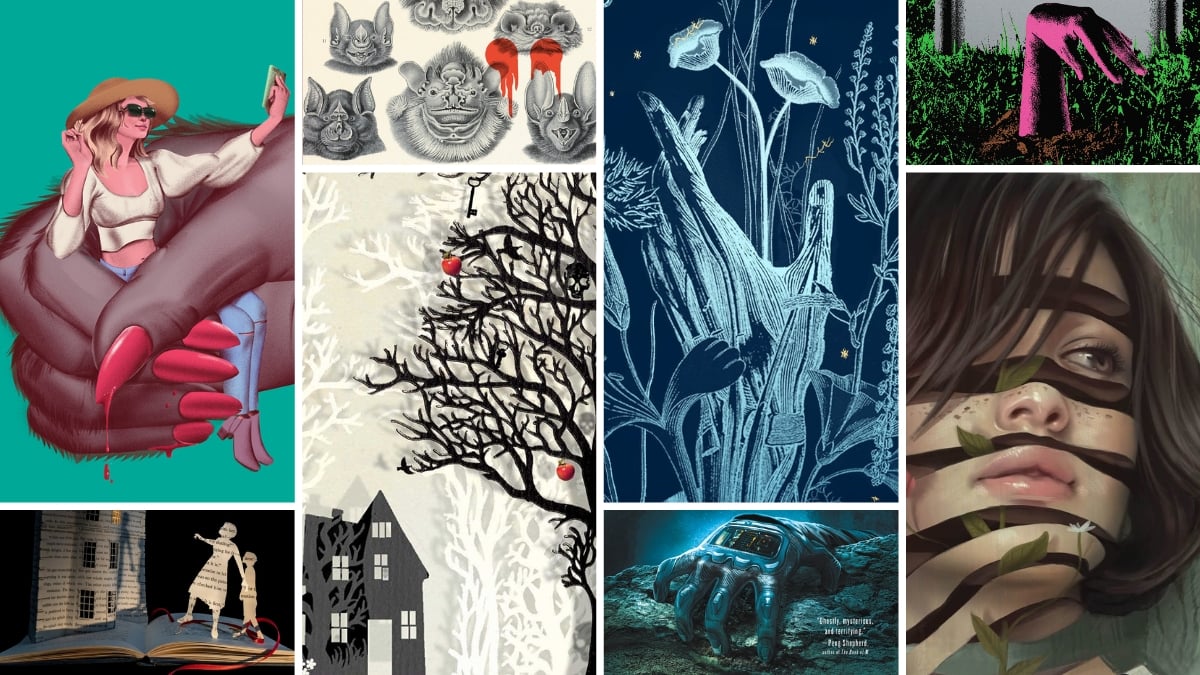



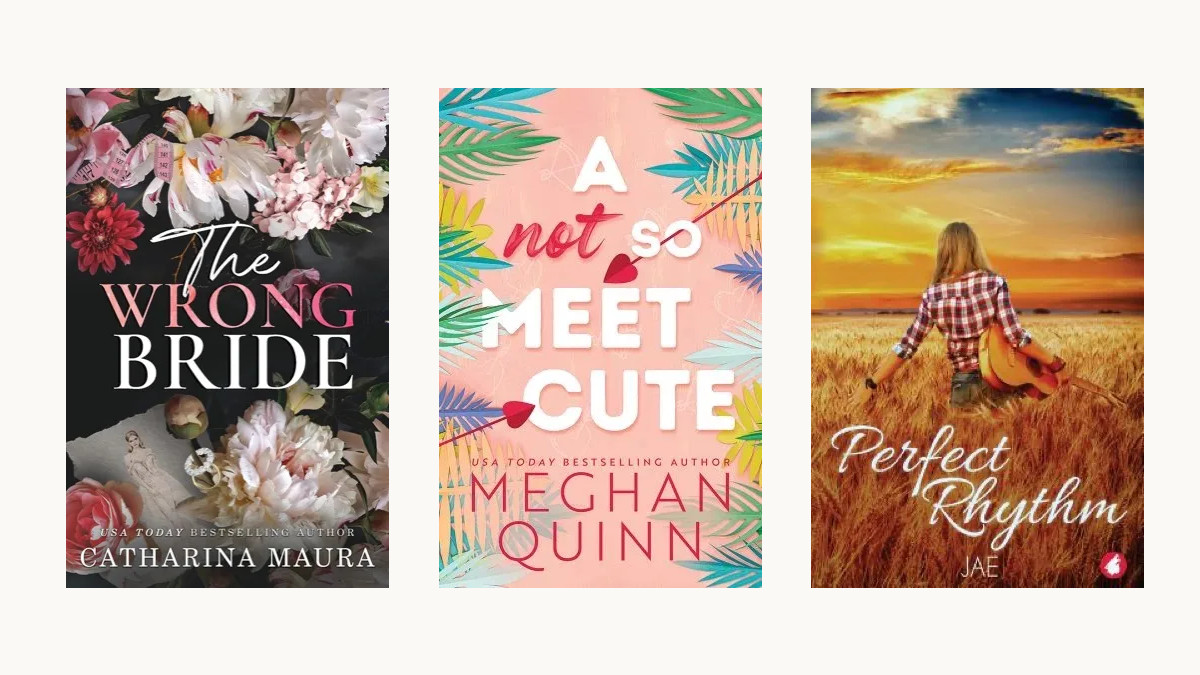

Published: Jan 23, 2023 05:30 pm